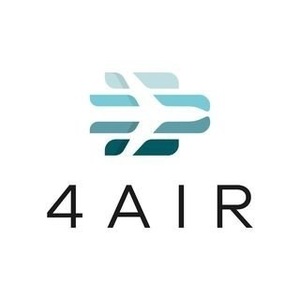4AIR launches Assure SAF Registry to track, validate SAF

May 23, 2023
BY 4AIR
4AIR, which helps companies offset their emissions, use sustainable aviation fuel (SAF), and drive technological change, on May 22 announced the launch of Assure SAF Registry, a blockchain-based web registry designed to document, trace and account for the sustainability attributes of sustainable aviation fuel (SAF).
The Assure SAF Registry provides complete transparency about the type of SAF purchased, the feedstock used, the blend of the fuel, and any sustainability certifications earned or regulatory programs for which the fuel may be eligible. The registry is designed for both physical and book and claim supply chains of SAF and will simplify inventory accounting and prevent double-counting of benefits. All while protecting suppliers’ commercially sensitive and confidential data. By uniquely addressing a SAF tracking need for fuel suppliers, FBOs, airlines, and operators, within the physical supply chain, the registry can unlock the opportunity for a robust book and claim tracking system as well.
“Most SAF today comes from one to two different feedstocks with a narrow range of blends. As SAF expands to new feedstocks and higher blends, transparency about the fuel and where it came from will be critical in efforts to scale its use across the industry, including both business and commercial aviation,” said Kennedy Ricci, president of 4AIR. “Assure SAF Registry will provide a key piece of infrastructure for the transparent scale-up of SAF in aviation, providing transparency to emission claims around SAF while maximizing the value for the operator.”
Advertisement
Leveraging the expertise gained through the documentation of 5.8 million gallons of SAF over the last 2 years, 4AIR created a registry that addresses the most challenging pain points found when tracing the usage of SAF. Usually, SAF is co-mingled in airport pipelines or fuel farms under mass balance or book and claim chains of custody, making it laborious to document, particularly when trying to retain information for regulatory claims from the use of the fuel.
The Assure SAF Registry serializes each unit of fuel and is linked to a specific owner and batch of SAF. This ensures that only one owner can ever claim a specific quantity of fuel and that sustainability characteristics are consistently and accurately communicated through various owners, providing confidence in the ownership and emissions accounting up and down the SAF supply chain.
Advertisement
Pilot programs will help the platform to automate integrations with supplier systems, eliminating the need for much of the manual reporting and accounting. In addition, a pilot program with the Roundtable on Sustainable Biomaterials (RSB) will seek recognition within the RSB Book & Claim System and work towards ecosystem harmonization and a credible claim for customers.
Related Stories
The U.S. Energy Information Administration maintained its forecast for 2025 and 2026 biodiesel, renewable diesel and sustainable aviation fuel (SAF) production in its latest Short-Term Energy Outlook, released July 8.
XCF Global Inc. on July 10 shared its strategic plan to invest close to $1 billion in developing a network of SAF production facilities, expanding its U.S. footprint, and advancing its international growth strategy.
U.S. fuel ethanol capacity fell slightly in April, while biodiesel and renewable diesel capacity held steady, according to data released by the U.S. EIA on June 30. Feedstock consumption was down when compared to the previous month.
XCF Global Inc. on July 8 provided a production update on its flagship New Rise Reno facility, underscoring that the plant has successfully produced SAF, renewable diesel, and renewable naphtha during its initial ramp-up.
The USDA’s Risk Management Agency is implementing multiple changes to the Camelina pilot insurance program for the 2026 and succeeding crop years. The changes will expand coverage options and provide greater flexibility for producers.
Upcoming Events










